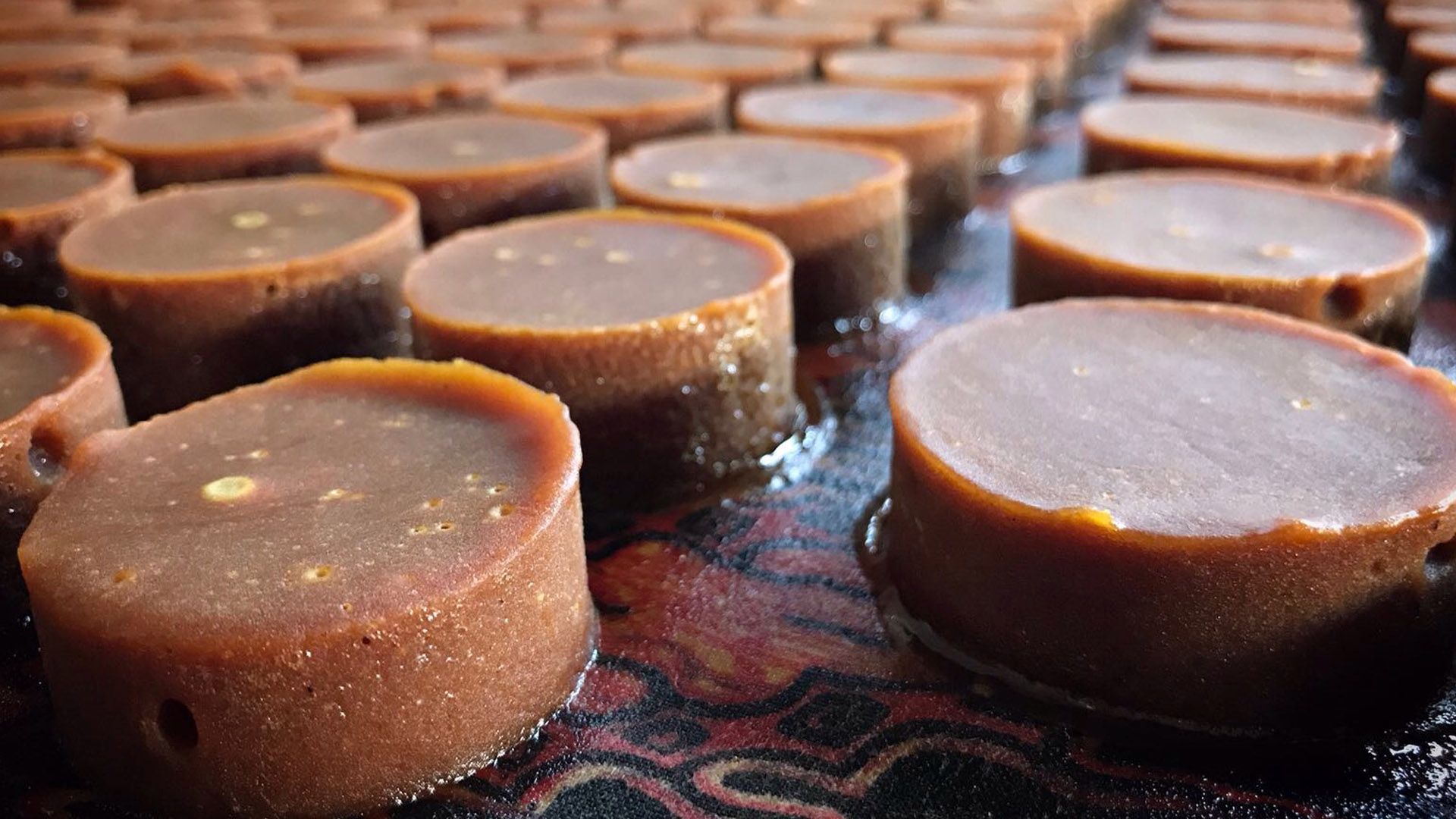We are introducing a variety of coconut tree and a tech solution for our teams that are set to improve the incomes and livelihoods of smallholder farmers by increasing the productivity of their plantations.
The key ingredient in our popular Bango sweet soy sauce – a staple used every day by millions of Indonesian families – is high-quality coconut sugar.
But as coconut trees typically grow to around 30 metres in height, collecting the sap (which gives us the sugar) requires a lot of effort. Plus, many existing trees are old, which means their productivity is declining. This, in turn, restricts the amount that the farmers can earn from their work.
To tackle these various challenges, we’re introducing an alternative variety of tree.
The Genjah Kuning Bali has a shorter trunk, which means the coconut sap can be collected without climbing the tree, making the process much easier and quicker, and far safer. And since the farmer can collect more sap per day, this increases their output and therefore their income. Also, it enables safer working conditions and incentivises young people – especially women – to join the profession.
Did you know?
Coconut sap comes from the flower of the tree, not the fruit (the hairy coconut). To ‘tap’ the tree for the sap, the farmer climbs to the top, then makes a cut into the stem below the flowers. The sap then drips into a container, ready to be emptied on the next climb. The farmer will typically climb each tree twice a day to collect the sap when it is fresh and then transform it into sugar.
We’re introducing these trees as part of a planting initiative in Indonesia, integral to which is a training and fertiliser distribution programme to equip smallholder farmers with the skills and knowledge they need to care for and nurture the trees. This will enable them to produce an optimum yield per tree – both in terms of volume and quality – and make their plantations more resilient against climate change.
“The way coconut sap is harvested now is difficult. This alternative breed of coconut tree promises to change that,” says Dave Ingram, Chief Procurement Officer at Unilever. “We are seeing smallholders interested in cultivating this new variety of coconut tree, and we expect that this project alone will directly benefit around 5,000 households.”The small coconut trees that are going to be big news
The fruits of our labour are now being realised
This initiative is the result of years of hard work. We began researching tree varieties in collaboration with the Indonesian Coconut Institute in 2015. Then we started developing seeds and breeding saplings in partnership with a professional coconut nursery in Bali.
In 2017, we established a 100-hectare pilot plantation, and since then we have been progressively scaling up the project in three growing regions: Lampung in South Sumatra, and Sukabumi and Pangandaran in West Java. As of June 2022, we have planted the equivalent of 3,300 hectares in collaboration with 3,600 smallholder farmers.
This planting is being carried out on existing plantations, replacing either existing old coconut trees or other cash crops. All farms and farmers are registered and mapped using digital technology, so we can track and better understand how to improve their productivity.
The initial batch of short-stemmed coconut trees have started producing sap and we’re now taking delivery of coconut sugar from these farms at our Bango factory.
The output from these plantations will increase year-on-year and peak in 2026. From that point onwards, we’ll be aiming to get half of our coconut sugar supply from this variety of tree.

Using technology to support sustainable farming
This month, we also rolled out a new mobile application to support coconut farmers in Indonesia to increase their yields in a way that’s kinder to the environment.
The app, called Cropin, was uniquely developed for Unilever’s field teams who work directly with coconut farmers. When our teams visit farmers in the areas we buy coconut sugar from, they update the app with information about the plantations. For example, they check how mature the trees are, any issues they are facing and their productivity levels. The app then gathers the data to provide location-specific advice that the teams share with farmers.
In this way, we can track how much coconut sugar we’ll likely be able to receive – strengthening the resilience of Unilever’s supply chain – and more importantly help smallholder farmers become more resilient, get good harvests and care for their land.
Helping to empower those at the heart of this industry
The initiative is part of our wider efforts to help create a more sustainable coconut industry.
We are a signatory to the first Sustainable Coconut Charter, an industry initiative to improve smallholder farmer incomes and livelihoods, enhance supply chain traceability, prevent deforestation and mitigate the climate crisis.
The charter will bring together industry leaders to develop programmes that address the social, economic and environmental wellbeing of smallholder farmers. The aim is to help empower people directly involved and impacted by coconut farming, so they can play a positive role in the sustainable development of their region.

